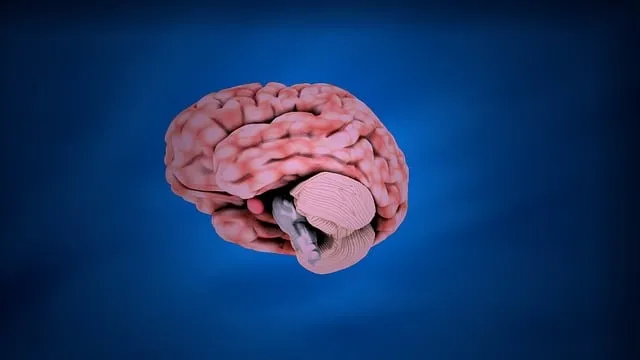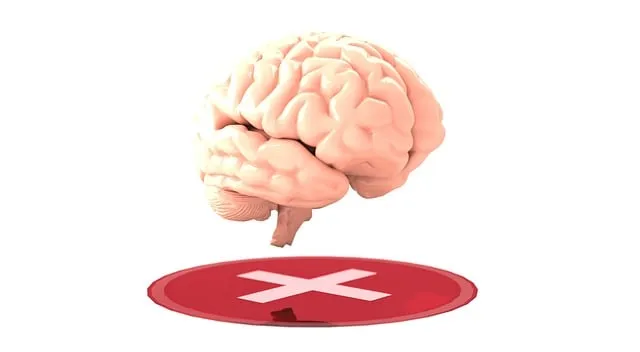The Lafayette Kaiser Permanente Mental Health Access Center exemplifies effective mental health policy implementation through holistic programs and community outreach, improving local well-being. While providing essential services like counseling and support groups, gaps exist in tailored care for youth, seniors, and diverse backgrounds due to financial and resource constraints. Advocacy by such centers drives policy changes, with burnout prevention and social skills training enhancing professional and patient support systems. Evaluating policy impacts using evidence-based metrics ensures successful mental health advocacy and improved patient outcomes.
Mental health policy analysis and advocacy are vital components in fostering equitable access to care. This article explores key aspects of mental health governance, using the Lafayette Kaiser Permanente Mental Health Access Center as a case study to illustrate successful strategies. We identify gaps and barriers in current services, propose advocacy strategies for improvement, and emphasize the importance of measuring success through impact evaluation. By examining these components, we aim to enhance understanding and inform policy changes that improve mental well-being.
- Understanding Mental Health Policy: A Necessary Framework
- The Lafayette Kaiser Permanente Mental Health Access Center: A Case Study
- Identifying Gaps and Barriers in Current Mental Health Services
- Advocacy Strategies for Improving Mental Health Policy
- Measuring Success: Evaluating the Impact of Mental Health Policy Changes
Understanding Mental Health Policy: A Necessary Framework

Mental health policies are pivotal frameworks that shape the availability and quality of care for individuals grappling with psychological disorders. Understanding these policies is crucial for fostering effective advocacy, ensuring access to comprehensive mental health services, and ultimately enhancing overall well-being within communities. The Lafayette Kaiser Permanente Mental Health Access Center serves as a beacon, demonstrating the potential impact of robust mental health policy implementation.
This center’s success highlights the importance of integrating inner strength development programs into policy frameworks. By prioritizing risk management planning for mental health professionals and implementing burnout prevention strategies, such centers can contribute to a resilient and thriving mental healthcare ecosystem. These approaches not only ensure that practitioners remain effective but also promote sustainable access to care for those in need.
The Lafayette Kaiser Permanente Mental Health Access Center: A Case Study

The Lafayette Kaiser Permanente Mental Health Access Center serves as a shining example of a successful community-based initiative focused on enhancing mental health services accessibility. This center has been instrumental in promoting mental wellness coaching programs and implementing community outreach initiatives, thereby significantly improving the well-being of residents in the surrounding area. By integrating various therapeutic approaches, the access center offers comprehensive support for individuals dealing with mood management issues.
Through its holistic approach, the Lafayette Kaiser Permanente Mental Health Access Center has not only increased awareness about mental health but also fostered a supportive environment. The center’s Community Outreach Program plays a pivotal role in connecting with diverse populations, ensuring that no one is left behind when it comes to accessing crucial mental health services. This case study underscores the potential of such centers to revolutionize mental health care by making professional support readily available and tailored to the unique needs of local communities.
Identifying Gaps and Barriers in Current Mental Health Services

In any comprehensive mental health policy analysis, a thorough examination of current services and their gaps is imperative. The Lafayette Kaiser Permanente Mental Health Access Center serves as a beacon of hope for many, offering critical resources such as counseling, therapy, and support groups. However, despite these efforts, there remain barriers that hinder access to quality care. One significant gap lies in the underavailability of specialized services tailored to diverse populations, including youth, seniors, and those from culturally diverse backgrounds. This lack of targeted programs can limit the effectiveness of treatment and contribute to disparities in mental wellness outcomes.
Moreover, financial constraints and insurance coverage play a pivotal role in restricting access. Many individuals struggle with the cost of therapy, medication, and related services, leading some to forgo necessary care. The Mental Wellness Journaling Exercise Guidance and Resilience Building techniques, for instance, while beneficial, might not be readily accessible due to financial barriers. Conflict Resolution Techniques, another valuable tool, often require dedicated spaces and trained facilitators—resources not universally available. Addressing these gaps and barriers is crucial for fostering an inclusive environment where all individuals can access the support needed to thrive in their mental wellness journeys.
Advocacy Strategies for Improving Mental Health Policy

Advocacy plays a pivotal role in shaping mental health policies and ensuring that services are accessible to all. Organizations like Lafayette Kaiser Permanente Mental Health Access Center lead the charge by championing causes related to mental well-being. Their efforts focus on various advocacy strategies, such as raising awareness about mental health issues within communities, advocating for policy changes that improve access to care, and promoting evidence-based practices. By engaging in direct policy advocacy, they influence legislative decisions, ensuring that regulations support and enhance mental healthcare services.
One effective approach is implementing burnout prevention strategies for healthcare providers, which is a crucial aspect of sustaining a robust mental health care system. Additionally, investing in social skills training and communication strategies can improve patient outcomes by fostering stronger provider-patient relationships. These advocacy initiatives work in tandem to create a more supportive ecosystem for both healthcare professionals and individuals seeking mental health services, ultimately contributing to better overall mental well-being.
Measuring Success: Evaluating the Impact of Mental Health Policy Changes

Measuring Success: Evaluating the Impact of Mental Health Policy Changes
Effective mental health policy advocacy requires a robust evaluation framework to assess the tangible impact of implemented strategies. By adopting evidence-based metrics, organizations like Lafayette Kaiser Permanente Mental Health Access Center can gauge success beyond simple access to services. This involves tracking improvements in patient outcomes, such as reduced symptoms of anxiety and depression, enhanced coping skills development, and increased self-awareness exercises.
Through regular assessments and feedback mechanisms, these policies’ effectiveness can be determined, ensuring that resources are allocated efficiently and Mind Over Matter principles are successfully integrated into care plans. Such an approach not only improves individual well-being but also fosters a more comprehensive understanding of the community’s mental health needs, guiding future advocacy efforts.
The analysis of mental health policy and advocacy is a critical step towards creating more inclusive and effective healthcare systems. By examining cases like the Lafayette Kaiser Permanente Mental Health Access Center, we can identify successful strategies to improve access and quality of care. Understanding the gaps and barriers in current services is essential for policymakers and advocates to push for meaningful changes. Effective advocacy strategies, coupled with measuring success through evaluation, can lead to significant improvements in mental health policy, ultimately enhancing the lives of those in need.


